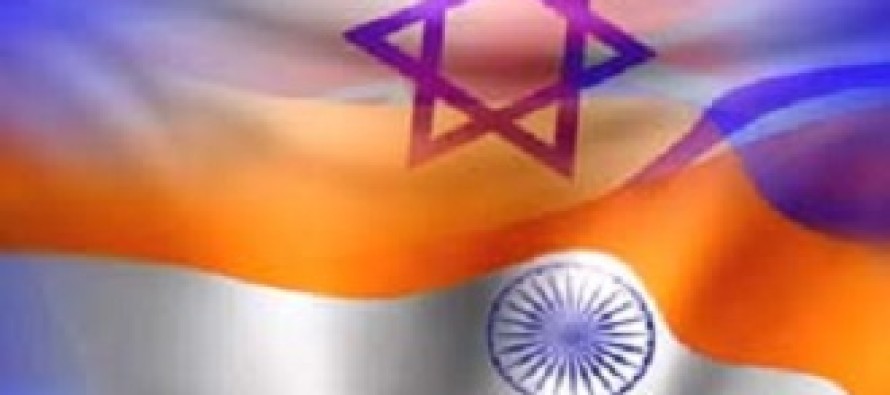India-Israel close relationship may likely to be stronger

Israel’s relationship with India under the Modi government is likely to be stronger because of two reasons.
First it is founded on relationship with strong religious and ideological moorings. In 2003, when Ariel Sharon visited India, the Hindu nationalist Rashtriya Swayamsevak Sangh (RSS) movement stated: “The entire world acknowledges that Israel has effectively and ruthlessly countered terror in the Middle East. Since India and Israel are both fighting a war against terrorism, therefore, we should learn a lesson or two from them.” The rise of radical Islam across South Asia and the Middle East has reportedly raised the stakes for intelligence sharing between Jerusalem and New Delhi.
Second, Prime Minister Modi visited Israel as chief minister of the western state of Gujarat and had spoken publicly about emulating the Jewish state’s remarkable economic success. Israel and Gujarat discussed several areas of cooperation like agriculture, industrial research and development, solar & thermal power, pharmaceuticals, water recycling and water desalination plants. External Affairs Minister Sushma Swaraj while in the opposition used to head an India-Israel “friendship forum” in Parliament. Several parliamentarians and intellectuals aligned with the ruling Bharatiya Janata Party (BJP) have reportedly travelled more than once to Israel.
In terms of military cooperation, few countries reportedly backed New Delhi as Israel did by supplying artillery shells during the 1999 Kargil conflict with Pakistan. Israel’s military industry firm reportedly announced plans in 2004 to establish five factories in India for the production of artillery shells.
Since then, Israel has emerged as India’s second biggest arms supplier after Russia. In December, India purchased 15 drones from the Jewish state, in an effort to boost security along its borders with Pakistan and China.
US based the International Business Times calls Modi “Israel’s best friend in South Asia,” in the recent headline story about the expected intensification of India-Israel ties writes “Modi has long courted political and trade links with the state of Israel and this policy, which BJP officials strongly endorse, “has turned into a financial bonanza for the western Indian province of Gujarat, where he has served as chief minister for the past 13 years.”
Israel announced in January that it had established a joint technology fund with India. After a memorandum of understanding regarding the planned fund was signed in December, Israel’s Consul General in Mumbai, Jonathan Miller, told India TV that the fund will help both Israeli and Gujarat-based companies in developing and strengthening the industrial relationship.”
A 2013 report in Japan-based Asia news publication The Diplomat writes: “While it was a Congress [Party] government that established diplomatic ties with Israel in 1992, it was under a BJP-led government from 1999 to 2004 that Indian ties with the Jewish State blossomed”
Since then commercial ties, technology sharing, space exploration, and military cooperation between the two countries have all grown steadily but quietly in recent years. Bilateral trade has shot up from less than $200 million in 1992 to almost $4.4 billion in 2013 (not including weapons sales, which account for billions more).
When pro-Palestinian protestors take to the streets of London and Paris, partnership with Israel matters more to India than solidarity with the Palestinian cause. Two days after Israel launched Operation Protective Edge on July 8, India’s Foreign Ministry expressed concern over the “tragic loss of civilian lives” in the Gaza Strip. But it also signaled alarm at “cross-border provocations resulting from rocket attacks” on Israel.
The government of new Prime Minister Narendra Modi refused to bow to pressure from communist and Congress lawmakers to censure Israel in Parliament. Last week, as the conflict in Gaza intensified, a group linked with the BJP organized a rally in Delhi in support of Israel.
Eight years ago, a previous Parliament had no trouble condemning Israel in a one-sided resolution passed during its war with the terrorist group Hezbollah in Lebanon.
India’s founding Prime Minister Jawaharlal Nehru was an outspoken partisan of the Palestinians. Under his daughter, Indira Gandhi, supported Palestine Liberation Organization’s Yasser Arafat. In 2004, when Congress returned to power under Sonia Gandhi after ousting the BJP, India-Israel ties turned frosty. Instead of simply maintaining its longstanding support for a two-state solution, India threw its weight behind the Palestinian demand for East Jerusalem as the capital of a future state.
India-Israel relation has long been a quiet affair because of not hurting the sentiments of Muslims in India and Arab allies. Though India voted to recognize Israel in 1950, successive governments in the 1960s, 1970s, and 1980s avoided public ties with Israel. India didn’t establish official relations with Israel until 1992, making it the last non-Arab, non-Muslim country in the world to do so.
That quiet policy appears to be changed by the Modi government. Observers speculate that Modi may visit Israel which would be the first by a sitting Indian prime minister. Furthermore Modi might even invite Israeli Prime Minister perhaps as chief guest in New Delhi at next January’s Republic Day parade. These two moves would demonstrate publicly close relationship between the two nations.


